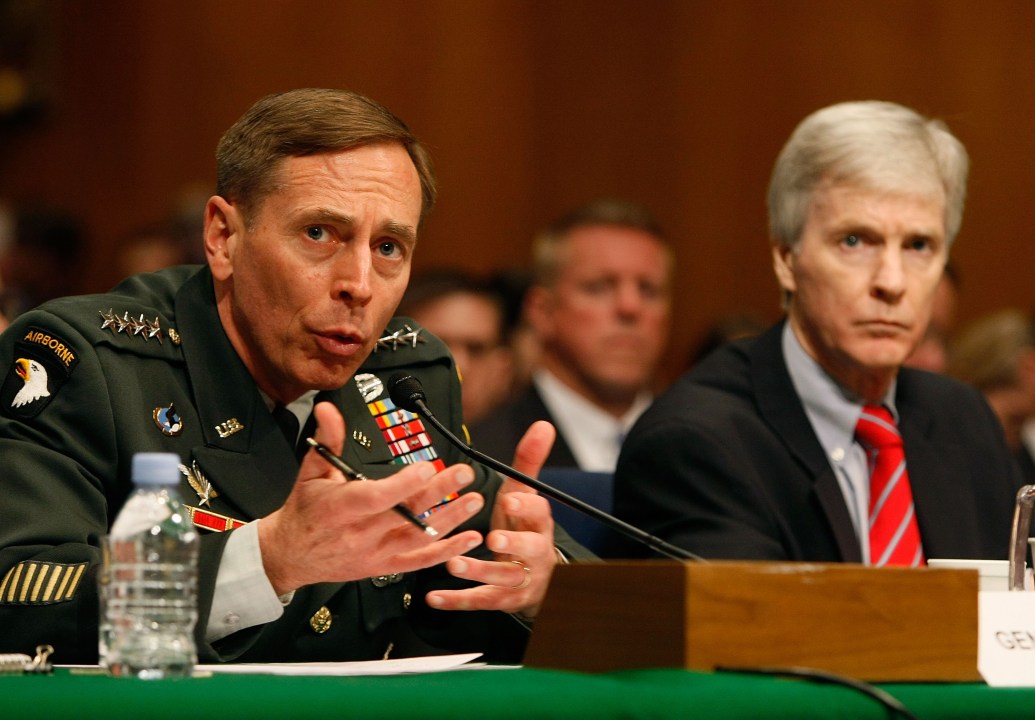 The message from General Petraeus and Ambassador Crocker’s opening statements to the Senate Armed Services Committee is that there has been significant progress in Iraq since September, but that his progress is fragile and that any rapid change in strategy would endanger it. The main news in Petraeus’s testimony was his commitment to a 45 day pause in troops withdrawals once US troop levels have been returned to a pre-surge level and his dismissal of the idea of a fixed timetable for withdrawal. Also worth noting from Petreaus’s evidence were his comments on the role of Iran and Hezbollah in training the extremist Shiite special groups and his contention that ‘Iraqi leaders now recognise the threat posed’ by Iran’s actions.
The message from General Petraeus and Ambassador Crocker’s opening statements to the Senate Armed Services Committee is that there has been significant progress in Iraq since September, but that his progress is fragile and that any rapid change in strategy would endanger it. The main news in Petraeus’s testimony was his commitment to a 45 day pause in troops withdrawals once US troop levels have been returned to a pre-surge level and his dismissal of the idea of a fixed timetable for withdrawal. Also worth noting from Petreaus’s evidence were his comments on the role of Iran and Hezbollah in training the extremist Shiite special groups and his contention that ‘Iraqi leaders now recognise the threat posed’ by Iran’s actions.
Ambassador Crocker’s statement was actually more interesting than Petraeus’s. Crocker’s testimony was upbeat, pointing to significant political and economic progress in Iraq since September. He argued that the strategy started by the surge was working and that while he could still not guarantee success in Iraq, it was closer now than it had been previously. He also had a positive read on the recent events in Basra, although Petraeus confirmed that the US did not receive a heads-up about it until the Friday before, noting how important it was that a Shiite-dominated government was prepared to take on Shiite militias.
Perhaps, the most important part of Crocker’s testimony, though, was his summing up.
“Iraqis, Americans and the world ultimately will judge us far more on the basis of what will happen than what has happened,” Crocker concludes in his opening statement. “In the end, how we leave and what we leave behind will be more important than how we came.”
This is something that we would all do well to bear in mind, whichever side of the Iraq debate we come down on.








Comments